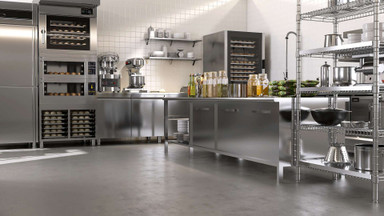Jul 26th 2024
Commercial vs. Residential Food Service Equipment
Choosing the right food service equipment is crucial for efficiency, quality, and safety in any kitchen. Whether you’re setting up a commercial kitchen or a residential one, understanding the differences between commercial and residential food service equipment can help you make informed decisions.
Durability and Build Quality
Commercial food service equipment is designed for heavy-duty use, featuring robust materials and construction to withstand continuous operation in busy kitchen environments. These units often use stainless steel and other durable components, ensuring longevity and resistance to wear and tear. In contrast, residential equipment is built for lighter use and may not hold up under the same demands. The materials might be less durable, making them suitable for occasional, less intense cooking.
Capacity and Size
One of the most significant differences between commercial and residential equipment is their capacity. Commercial equipment is built to handle large volumes of food, catering to restaurants, cafeterias, and other food service establishments. For example, commercial ovens, refrigerators, and dishwashers are much larger than their residential counterparts, allowing for more substantial batch cooking and storage. Residential equipment, while often more compact and suitable for household kitchens, lacks the volume capacity needed for large-scale food preparation.
Power and Efficiency
Commercial kitchen appliances are designed to be highly efficient, with powerful motors and energy sources to ensure quick and consistent cooking results. This efficiency is vital in fast-paced commercial settings where time is of the essence. On the other hand, residential equipment is generally less powerful, designed to meet the needs of home cooking where speed and volume are less critical. This difference in power can impact cooking times and overall efficiency in food preparation.
Specialized Equipment
Commercial kitchens often require specialized equipment that is not typically found in residential kitchens. Items such as industrial mixers, deep fryers, and tortilla maker machines are designed for specific tasks that meet the needs of professional food service environments. These machines help streamline operations and maintain consistency in food quality. Residential kitchens, however, focus on versatility and multifunctionality, with appliances designed to perform a variety of tasks rather than specialized ones.
Now that you know the differences between commercial and residential food service equipment, you can make more informed choices for your kitchen setup. From high-powered ovens to specialized tortilla machines, choosing the appropriate equipment can significantly impact the efficiency and quality of your food preparation process.

